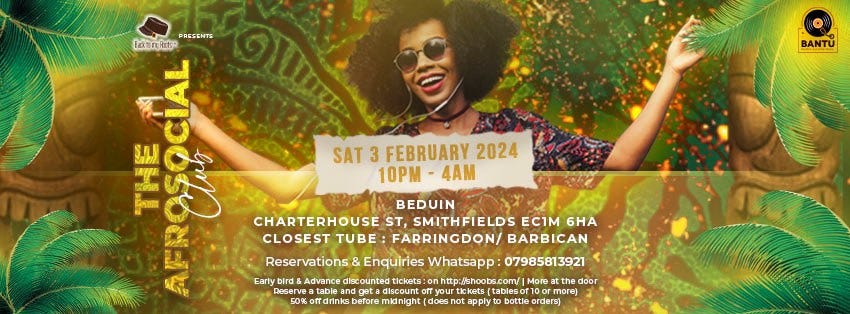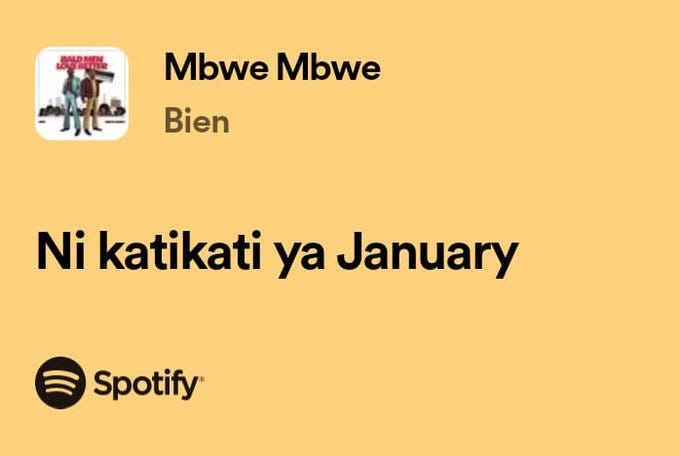East Africa, a region brimming with cultural diversity and creative potential, is poised to embrace a powerful catalyst for its music, arts, and culture: the Swahili language.
As the world recognizes the rich tapestry of East African talent, a shared linguistic foundation can further propel the region onto the global stage. However, this transformation requires top-down commitment, integrated education, and societal embracement of Swahili's significance.
Moreover, the importance of language within diaspora communities cannot be overstated. Nurturing Swahili in the diaspora becomes a vital endeavour for future generations.
Unifying Through Language
Swahili, also known as Kiswahili, is already a lingua franca in East Africa & beyond, spoken by over 200m people across the region. A beautiful language, its significance stretches beyond communication; it is a cultural treasure, a bridge that connects people from diverse backgrounds, and a source of regional identity. Harnessing its potential for the arts and culture is the next logical step.
Top-Down Commitment
To leverage Swahili as a catalyst for East African music, arts, and culture, it's imperative that governmental and institutional support is provided. This includes:
Cultural Policies: Governments should formulate policies that recognize the importance of Swahili in preserving and promoting regional cultural heritage. This involves dedicating resources to support Swahili-based creative endeavours.
Educational Reforms: Incorporating Swahili into the education system at all levels (state/private) is vital. This will ensure that the language is not only spoken but also used as a medium for teaching arts, history, and culture. It fosters an environment where young talents can be nurtured.
Investment in the Arts: Allocate funds and resources to support artists, musicians, and cultural institutions that promote the use of Swahili in their creative expressions. This includes grants, exhibitions, and cultural festivals that celebrate Swahili artistry.
Integrated Education
Education is the cornerstone of change. To fully embrace Swahili as a catalyst for arts and culture, it should be seamlessly woven into the fabric of education:
Language Programs: Encourage the development of high-quality language programs that facilitate Swahili learning, particularly in primary and secondary schools. This ensures that future generations are proficient in the language.
Arts and Culture Curriculum: Integrate Swahili into arts and culture curricula, emphasizing its role in preserving and celebrating East African heritage. This approach bridges the gap between language and creative expression.
Cultural Exchange Programs: Facilitate cultural exchanges, both locally and internationally, to enable students to experience and appreciate Swahili culture first hand. This fosters a sense of pride and understanding of the language's significance.
Societal Embrace
To truly unlock the potential of Swahili in East Africa's music, arts, and culture, it requires a grassroots effort, especially in the diaspora:
Community Initiatives: Encourage local communities to celebrate their heritage by embracing Swahili. This could involve community-led art exhibitions, cultural performances, and storytelling in Swahili.
Media and Entertainment: Promote Swahili language content in the media, from television shows to radio broadcasts and music lyrics. Encourage East African artists to compose in Swahili to reflect the region's cultural richness.
Public Discourse: Foster a public discourse that highlights the importance of Swahili as a cultural catalyst. Engage in discussions, seminars, and cultural events that emphasize Swahili's role in preserving traditions and fostering creativity.
The Promising Future of East African Culture
Embracing Swahili as a unifying language holds the potential to elevate East Africa's music, arts, and culture to unprecedented heights. This linguistic thread, connecting a mosaic of traditions and talents, has the power to harmonize East Africa's creative voices and project them onto the global stage. Beyond its East African roots, Swahili is making significant strides. In recent years, countries such as South Africa, Botswana, Namibia, Ethiopia, and South Sudan have recognized the value of Swahili, introducing it as a subject in schools or developing plans to do so. This not only unites East African creatives but also contributes to the growth of the language's heritage and history on a broader African scale.
Language is a gateway to cultural identity, and by intentionally fostering Swahili within diaspora communities, we ensure that the rich heritage and stories are passed down through the generations. Music, arts, and popular culture emerge as powerful mediums to initiate and sustain these conversations, weaving a cultural tapestry that transcends geographical boundaries and connects the diaspora to their East African roots.
BANTU is BACK - Sat 3rd, Feb 24
Beduin, Charterhouse St, Smithfields EC1M 6HA!
The holiday season might be behind us, but the #AfroSocial Club don't stop
Tickets on sale at:
https://shoobs.com/events/91329/bantu-the-afrosocial-club
Music : Afrobeat, Hip Hop, R&B, Zouk, Bongo, Genge, Dancehall & More



